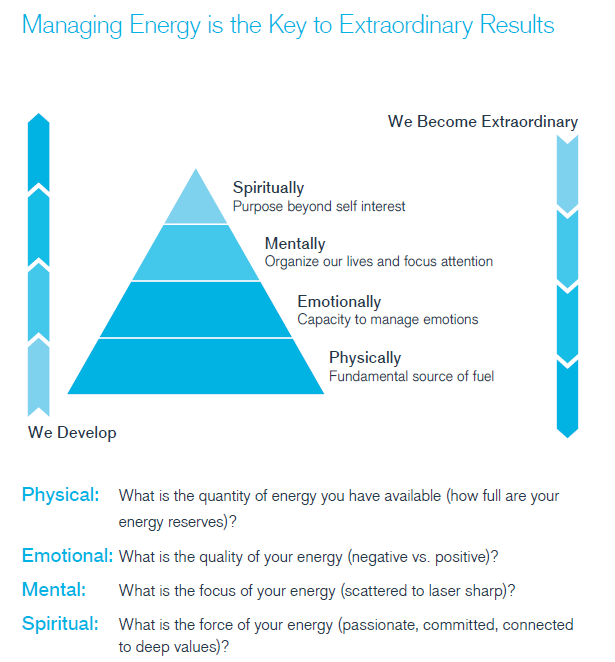Knowledge. Shared Blog
June 2019
Helping Younger Generations Overcome Stress
 John Evans, Jr, EdD | Follow Head Strategist, Knowledge Labs™ Professional Development
John Evans, Jr, EdD | Follow Head Strategist, Knowledge Labs™ Professional Development
Stress management isn’t limited to adults. Dr. John L. Evans Jr. shares three tips for how you can help younger generations.
My best friend’s wife, devoted mother of four, had had enough. She threw the children’s Xbox into the pool.
“We’ll be playing more family board games and laughing more,” she said after Operation Console Overboard. “If only Fortnite could have been tossed in, too.”
Now it’s clear this mom was stressed, but after taking away the devices and spending some quality time with her brood, she soon realized why they spent so much time with a mind-numbing device. They were pretty stressed out themselves and started to open up about what was truly bothering them.
Plug In to a Different Kind of Outlet
Throughout the year, pressures abound for parents and children alike as they tackle busy schedules and constant extracurricular activities, often leaving little time to connect as a family on what matters most. Through our research on stress and recovery, as well as consultation with advisors through Knowledge Labs, we’ve learned it’s not the flood of activities but the proper recovery from stress that prevents burnout. Strategically managing stress can make you happier and help you do your best – at any age.
Share a Story, Not a Lecture
Child psychiatrist Dr. Robert Goldstein has seen a distressing uptick in childhood anxiety and depression over the last 10 years. Along with our partners at the Human Performance Institute (HPI), who have been studying stress and how to overcome it for 35 years, Dr. Goldstein recommends these three steps to help you connect with the young people in your life and turn the stimuli that trigger feelings of being overwhelmed into new growth.
- Start the conversation at the dining room table. Be kind. If the child is off to college or grad school, talk by phone. The key is to be intentional, sending an unmistakable signal that you are here to listen. No throwing things!
- After listening with compassion, tell a story about how you had been stressed out regarding losing a top client or the markets tanking. Be vulnerable and keep it real. Everyone reacts differently to stress. Tell your story with sincerity to unlock meaning and relief.
- Patiently move the discussion over to energy management, as put forth by Dr. Jim Loehr and Dr. Jack Gropell of the HPI. Energy is our most important asset, more so than time. Without energy, time is meaningless. Convey a desire for your child to retain and improve energy levels throughout life. Help them understand the different types of energy by talking through the pyramid below.

Next, tell another story, one about investing more energy in exercise, nutrition and sleep. By studying elite athletes and working with corporate executives, HPI learned that skillfully managing both physical and mental energy in sports and business can take you to the next level of performance. Now it’s important not to lecture here, advises Dr. Goldstein. Advice should come in the form of a personal anecdote, not an after-school special. Maybe taking up yoga or eliminating fast food boosted your own energy levels, helping you get your stress under control. Invite your kids to come with you on a nature walk, to volunteer at the local dog shelter or to make a healthy meal as a family.
Or invoke one of your kids’ favorite subjects – themselves. Tell a story about how proud you are of a recent accomplishment and how you admired the way they overcame stress in order to bring their goal to fruition.
Critical Boundaries
Back to Fortnite. You must acknowledge, with sincerity, how fun and addictive digital entertainment can be. You may even be tempted to play the game a little, showing empathy. But then it’s time for some tough love. Depending on your child’s level of development, find a way to share your message that digital games “may be getting too much of our attention.” Extended game playing and smart phone engagement are taking a toll on their energy, one potentially too high to offset. Boundaries are called for – in fact, they are critical. And make sure to lead by example, perhaps with less-prized possessions getting thrown into a swimming pool.
a.text-button.arrow.borderless.blue:after {color: #12749A !important;}
The War on Stress
Janus Henderson Investors recently partnered with the Financial Planning Association and Investopedia to understand the drivers and impact of negative stress on financial advisors and investors, both professionally and personally.
Knowledge. Shared
Blog
Back to all Blog Posts
Subscribe for relevant insights delivered straight to your inbox